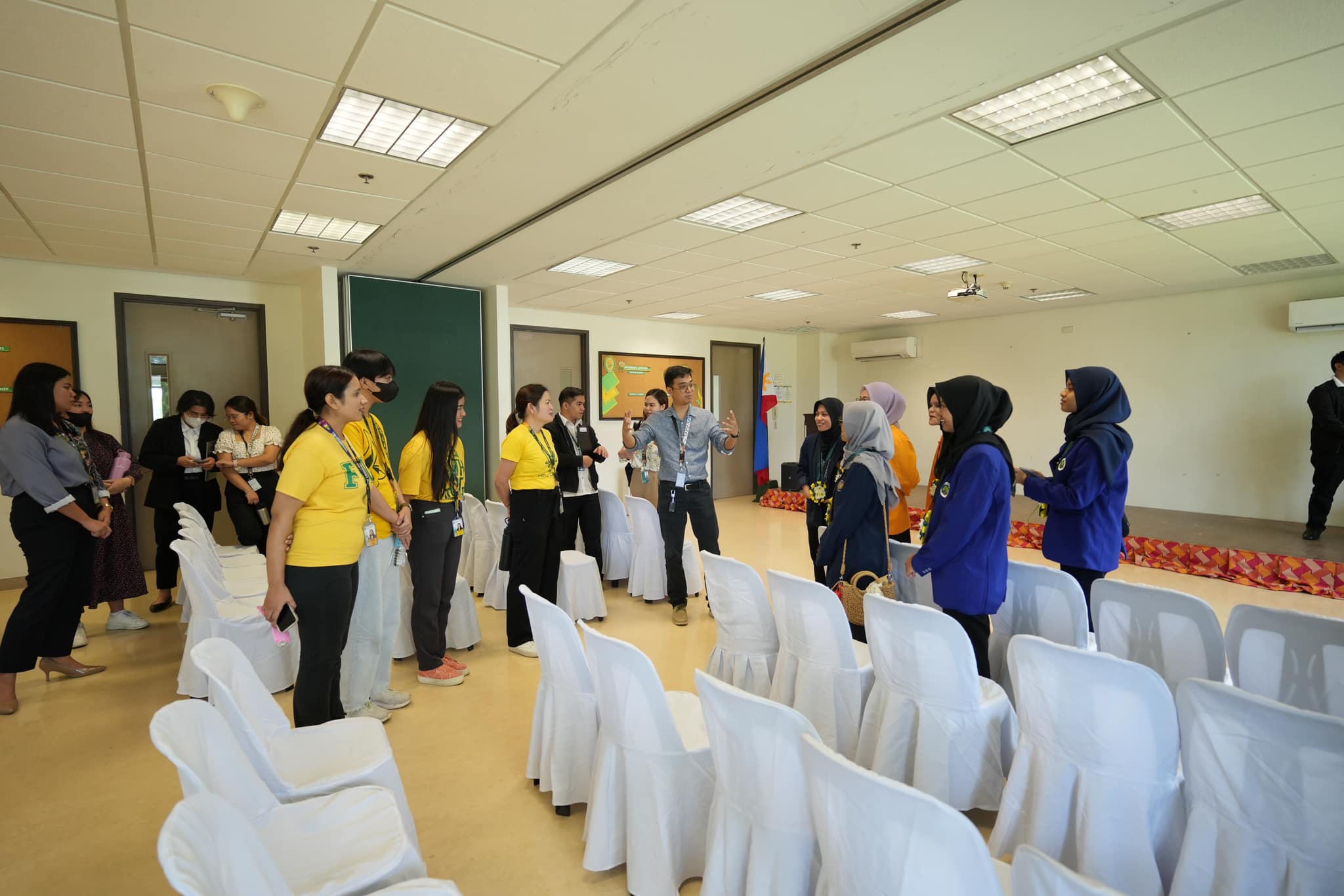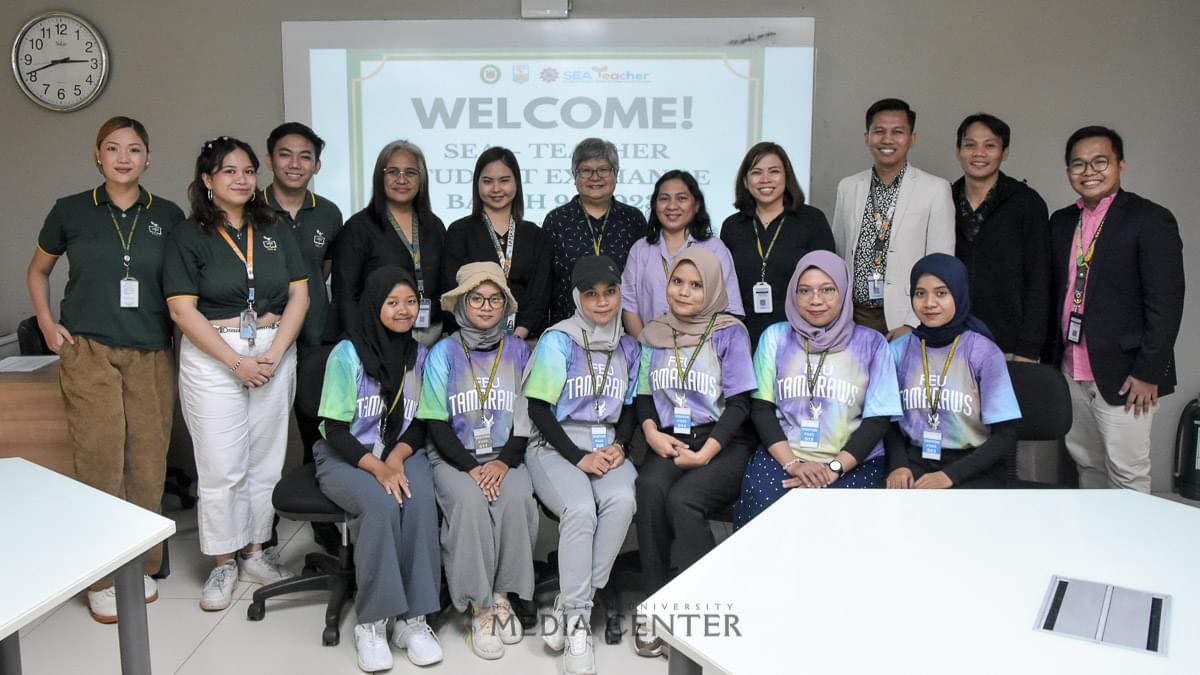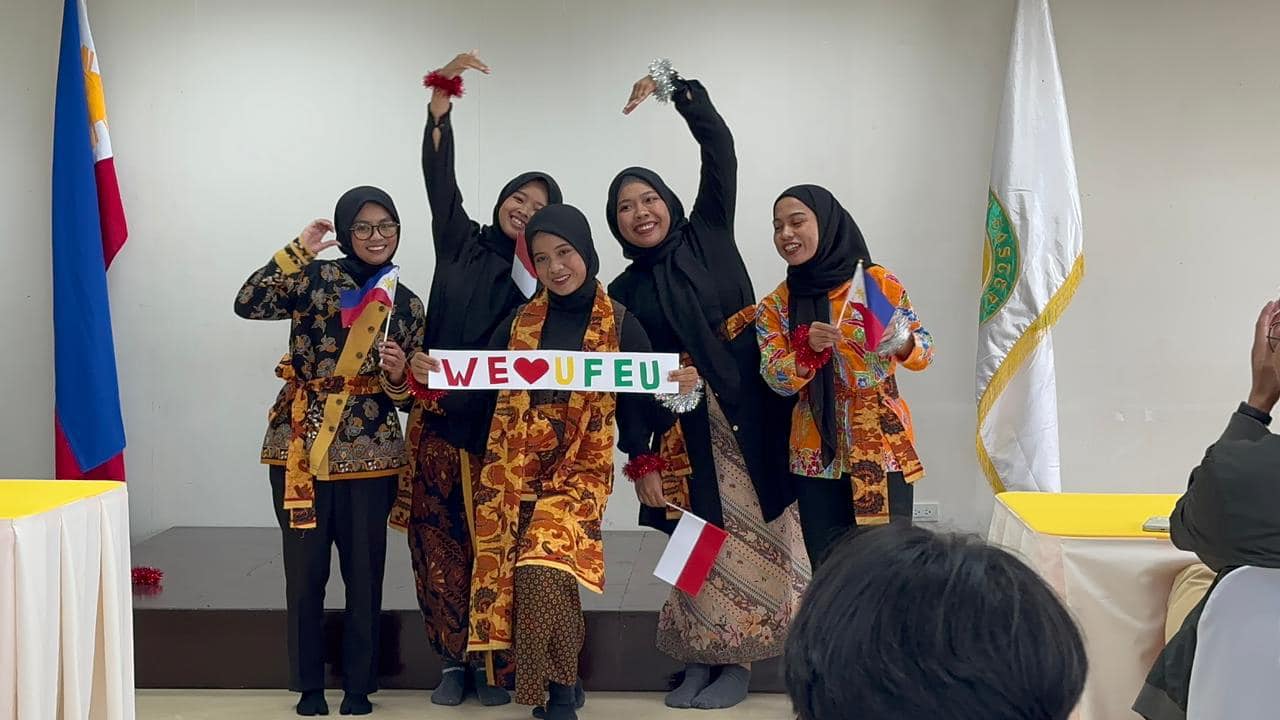Last Nov. 8, Far Eastern University (FEU) and Universitas Negeri Surabaya (UNESA), Indonesia strengthened international partnership for academic advancement and cultural exchange.
This year has been productive and meaningful for both universities as they engaged and explored in various activities with FEU International Relations Office (IRO), FEU Manila Institute of Education (IE), FEU Cavite, and FEU Institute of Arts and Sciences Department of Psychology Graduate Studies.
Enjoy this quick trip down memory lane with FEU and UNESA.
FEU Manila-IE and FEU IRO welcomed Indonesian student participants of SEA-TEACHERS Student Exchange Program-Batch 9 from UNESA last Sept. 19. This also included the University of Halu Oleo and Universitas Negeri Malang.
As part of this welcoming activity, the Indonesian students toured around Intramuros to experience the firsthand flashback of Filipino history and culture, and to taste the well-known halo-halo. This cultural trip is in partnership with FEU Manila-Institute of Tourism and Hotel Management and PATA Philippines FEU Student Chapter.

The next day, Sept. 20, the delegates were introduced to FEU Cavite. They were greeted with an overview of Philippine culture through various lively and colorful performances from the Basic Education Department. They were also toured by tourism students around the campus where they would be immersed to different mentorship programs for a month.
The latest event in this partnership is FEU IAS Department of Psychology’s Special Lecture Series. On the topic psychological impact of climate change, a part of this Special Lecture was held last Nov. 8 with Prof. Siti Jaro’ah of UNESA as the guest lecturer. The lecture was also joined by UNESA Vice Dean of Faculty of Education, Dr. Andi Kristanto and other lecturers.

The FEU and UNESA partnership shows the value of globalization in the education system. As the world becomes more connected, collaboration for academic institutions is now more vital as it expands students’ experiences and opportunities to be more capable in solving real-world problems and bridging cultural gaps. (Stephanie Joy M. Lip)
